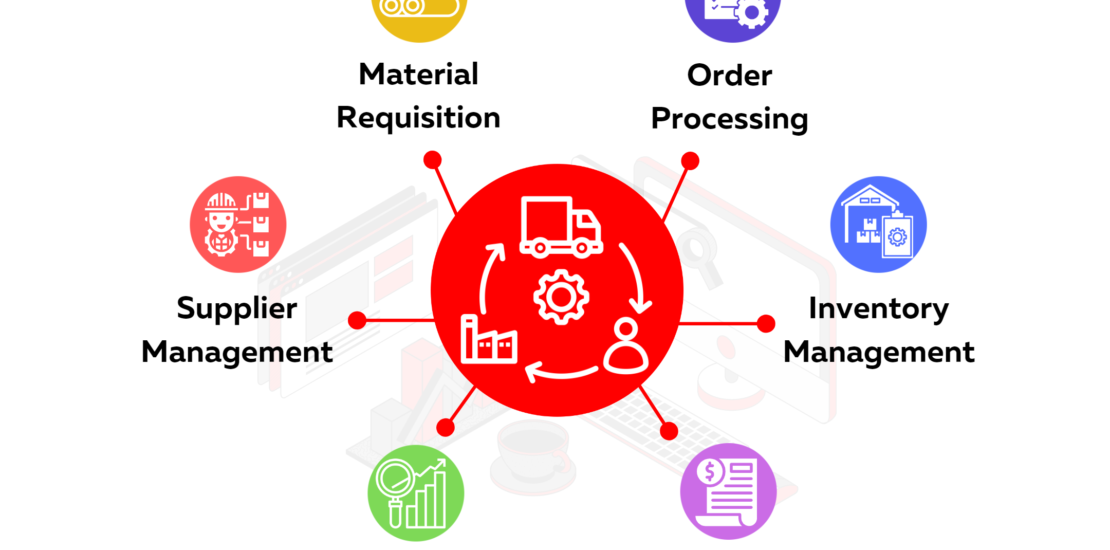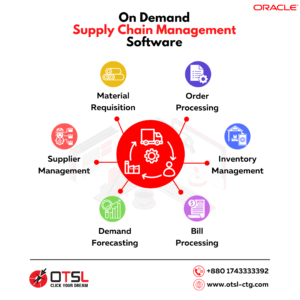Supply chain management software for NGO
- July 10, 2023
- Posted by: shakil
- Category: Software

 Supply chain management for non-governmental organizations (NGOs) follows similar principles as in other industries but with some specific considerations due to the unique nature of NGO operations. Here are some key aspects to consider when implementing a supply chain management system for an NGO:
Supply chain management for non-governmental organizations (NGOs) follows similar principles as in other industries but with some specific considerations due to the unique nature of NGO operations. Here are some key aspects to consider when implementing a supply chain management system for an NGO:
1. Needs assessment and planning: NGOs often work in challenging environments and deliver aid or services to vulnerable populations. A thorough needs assessment is essential to understand the requirements, including the type and quantity of resources needed, the location of beneficiaries, and any logistical challenges. Proper planning ensures the right resources are procured and distributed effectively.
2. Donor coordination and compliance: NGOs often rely on donations and grants from various sources. It’s crucial to establish processes for donor coordination, ensuring compliance with specific funding requirements and reporting standards. Supply chain management systems can assist in tracking and reporting on the utilization of funds and resources, ensuring transparency and accountability.
3. Procurement and sourcing: NGOs need to identify reliable suppliers and establish procurement processes that prioritize value for money, quality, and ethical considerations. SCM systems can help streamline the procurement process, manage supplier relationships, and ensure compliance with procurement policies.
4. Inventory and warehouse management: Efficient inventory management is vital to avoid stockouts or excess inventory. SCM systems can assist in tracking inventory levels, expiration dates (if applicable), and the location of stored goods. Warehouse management features help optimize storage space, improve picking and packing processes, and ensure accurate stock tracking.
5. Transportation and logistics: NGOs often operate in remote or challenging areas, and transportation logistics can be complex. SCM systems can assist in optimizing routes, coordinating transportation providers, and tracking shipments to ensure timely delivery. Integration with geographic information systems (GIS) can aid in route planning and optimizing distribution networks.
6. Monitoring and reporting: Effective supply chain management requires monitoring and reporting on key performance indicators (KPIs). SCM systems can provide real-time visibility into supply chain operations, including procurement timelines, inventory levels, delivery performance, and overall expenditure. This information helps identify bottlenecks, track progress, and make data-driven decisions.
7. Collaboration and information sharing: NGOs often work in partnerships with other organizations, government agencies, and local communities. SCM systems can facilitate collaboration through shared platforms, electronic data exchange, and visibility into supply chain processes. This enables effective coordination, information sharing, and joint decision-making.
8. Ethical and sustainable practices: NGOs often have a responsibility to ensure their supply chains adhere to ethical and sustainable practices. SCM systems can help track and monitor supplier compliance with environmental, social, and governance (ESG) standards, such as fair trade, labor rights, and environmental impact.
It’s important to note that the specific requirements and challenges of supply chain management for NGOs may vary depending on the nature of their work, geographical context, and the sectors they operate in (e.g., healthcare, disaster response, development projects). A tailored approach that aligns with the organization’s mission and operational needs is crucial for effective supply chain management in an NGO context.

I have to thank you for the efforts youve put in writing this blog. I really hope to check out the same high-grade content from you in the future as well. In truth, your creative writing abilities has inspired me to get my own blog now 😉